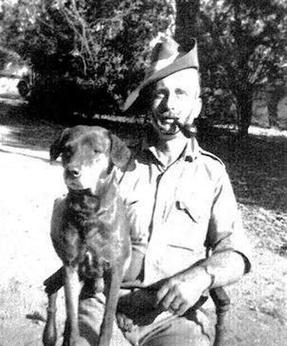
PUMPA - SMART LEARNING
எங்கள் ஆசிரியர்களுடன் 1-ஆன்-1 ஆலோசனை நேரத்தைப் பெறுங்கள். டாப்பர் ஆவதற்கு நாங்கள் பயிற்சி அளிப்போம்
Book Free DemoKenneth Douglas Stewart Anderson was born on 8 March 1910 in Bolaram, Telangana. Although he was British, his family had settled in India, for six generations from the pre-Independence times. His father, Aryan Stewart, was employed in the British Military and was in charge of paying the army personnel. He took a deep interest in hunting and wildlife, which he transferred to his son Kenneth. Kenneth Anderson was influenced by his father to a great deal that he spent the majority of his life, hunting. He quit studying law in Germany and returned to India, to work in the British Aircraft Factory in Bangalore.
He loved hunting to the extent that he spent most of his time alone and unarmed in the wilderness of the jungle. He was an exceptional hunter, and has to his credit, a number of wild games like the man-eating tigers and leopards. He has hunted down very dangerous animals including rouge elephants, panthers and tigers, which has paved the way for him to write about a series of real-life adventure stories. He meditated in the wilderness and found inner peace within its depths, giving him the comfort of a home. In his "Introduction to Tales from the Indian Jungle", Anderson writes about himself: "He [Anderson] appears to be of the jungle himself, and we get the impression that he belongs there. This is the home for him and here is the place he would want to die; the jungle is his birthplace, his heaven and his resting place when the end comes."
He delved deep into the solitude of the forest that he established a connection with the inhabitants of the jungle. Since most of them belonged to different tribes, he succeeded in understanding their diverse culture, way of living, worship and food. His books deal with his experiences in the forest, the poor facilities that need to be changed, their rich culture, and health facilities. He explains in detail about the rich and valuable assets that one can take from the tribes, like medicine, day-to-day survival skills, hunting techniques etc. He considers the tribes as more intelligent than the rich common folk. He believed in their herbal medicine compared to the English medicine, that he carried it with him in his pouch, during his hunting trips.
He spoke indigenous languages of the tribes. He also spoke Kannada and Tamil fluently. He spent his later years as a wildlife photographer. He has to his credit around 15 books and two volumes dealing with his experiences in the jungle. His books were also published posthumously (after his death).

Kenneth Anderson with his adopted dog
| SI.no | Words | Meaning |
1 | Solitude | Being alone |
2 | Personnel | Group of people working in a large organization, most often the Army |
3 | Exceptional | Standing out from the rest; Really good |
4 | Meditate | Making one's mind calm |
5 | Inhabitants | People who live in a particular place |
6 | Indigenous | People who originally belong to a place; Natives |
7 | Posthumously | After the death of a person |
Reference:
https://en.wikipedia.org/wiki/Kenneth_Anderson_(writer)